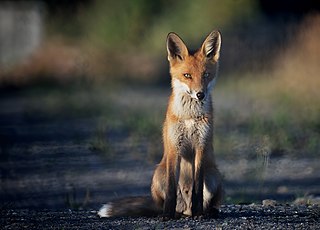See also
- Billy Gram (born 1970), American musician and professional wrestling manager
- William Graham (disambiguation)
Bill Graham or Billy Graham may refer to:
William, Willie, Will, Bill, or Billy Smith may refer to:
Mills is an English and Scottish occupational surname. Mill workers or owners of one or more mills would have received the name, through being called John the worker of the mills, or Joe the owner of the mills until it was shortened to simply John or Joe Mills. Notable people with the surname include:
Bradley is an English surname derived from a place name meaning "broad wood" or "broad meadow" in Old English.
William or Bill Murray may refer to:
Chris is a short form of various names including Christopher, Christian, Christina, Christine, and Christos. Chris is also used as a name in its own right, however it is not as common.
The surname Collins has a variety of likely origins in Britain and Ireland:
Bell is a surname common in English speaking countries with several word-origins.
James is a surname in the English language originating from the given name, itself derived from the HebrewYaʿaqōḇ. Notable people with the surname include:

Paul is a common Latin masculine given name in countries and ethnicities with a Christian heritage and, beyond Europe, in Christian religious communities throughout the world. Paul – or its variations – can be a given name or surname.
Hart is a surname. Notable people and characters with the surname Hart include:
Knight is an English surname.
The surname Burns has several origins. In some cases, it derived from the Middle English or Scots burn, and originated as a topographic name for an individual who lived by a stream. In other cases the surname is a variant form of the surname Burnhouse, which originated as a habitational name, derived from a place name made up of the word elements burn and house. In other cases the surname Burns originated as a nickname meaning "burn house". In other cases, the surname Burns is an Anglicised form of the Irish Ó Broin, which means "descendant of Bran". In some cases the surname Burns is an Americanized form of the Jewish surname Bernstein, which is derived from the German bernstein ("amber").
Pearce is a surname, from knights of the Norman lord Mansfield prior to the invasion of England. It derives etymologically from the Germanic word to pierce, and was a name commonly given to warrior caste in Saxon/Jute, p-celtic and oil languages. Another etymology is from Piers, the medieval vernacular form of Peter, and may refer to:
Barr is an English, Scottish, and Irish surname, and may refer to:
Jackson is a common surname of Scottish, Irish and English origin eventually becoming a common American surname also. In 1980, Jackson was the 24th most common surname in England and Wales. In the 1990 United States Census, Jackson was the thirteenth most frequently reported surname, accounting for 0.3% of the population.

Burke is a Norman-Irish surname, deriving from the ancient Anglo-Norman and Hiberno-Norman noble dynasty, the House of Burgh. In Ireland, the descendants of William de Burgh had the surname de Burgh, which was gaelicised in Irish as de Búrca and over the centuries became Búrc, then Burke, and Bourke.
Richardson is an English surname most commonly found in North East England. The prefix Richard is a given name popularised during the Middle English period derived from the Germanic ric ("power") and hard ("brave"/"hardy"). The suffix -son denotes "son/descendant of". The names Richard and Richardson are found in records as early as 1381 in Yorkshire, England. There are variant spellings including the Swedish Richardsson. People with the name Richardson or its variants include: Dickson, Dixon.

Fox is a surname originating in England and Ireland. The derivation is from the Middle English "fox", itself coming from the Old English pre 7th century "fox". The surname first appears on record in the latter part of the 13th century, with the first recorded spelling in 1273 to be that of John Fox in the "Hundred Rolls of Yorkshire", England. In Ireland, Fox is mainly a translation of the Old Gaelic "Mac a'tSionnaigh".
Barrett is an Irish surname. It is derived from the Gaelic Bairéid. Popular in both south-east and south-west Ireland, it is most common in the Irish counties of Mayo and Galway but particularly County Cork. The Barretts first appeared in Ireland following the Norman invasion. As with many other Anglo-Norman families, they were quickly assimilated into Irish culture. Another translation for Barrett is "warlike people".
The surname Kendall, Kendl, or Kendal has two widely accepted origins. The first is from the market town of Kendal in Cumbria. The earliest recorded form of this town's name is in 1095 as Kircabikendala, literally "Church by Kent dale". The second is as an anglicization of Middle Welsh Kyndelw, a given name, as in Cynddelw Brydydd Mawr.